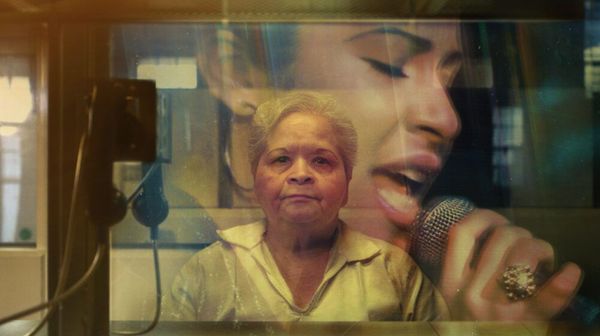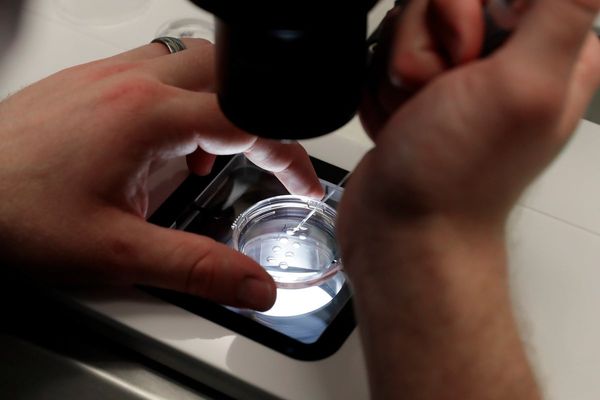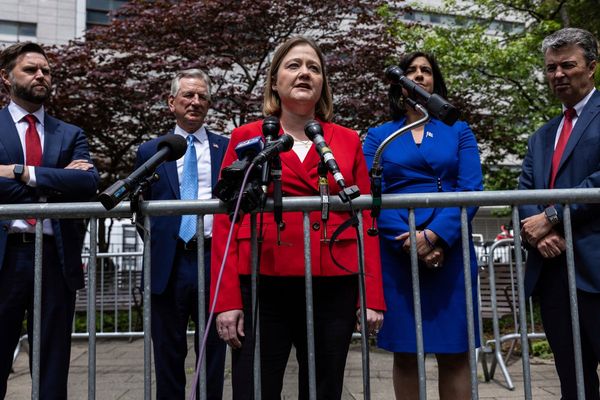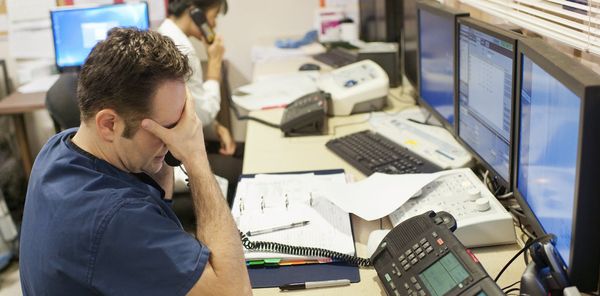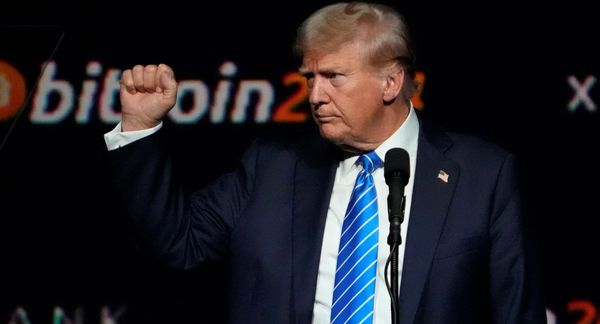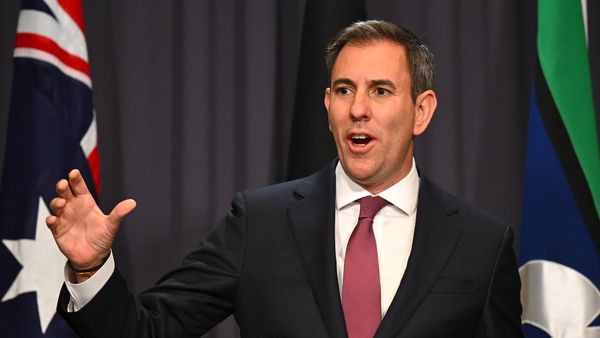
CHALMERS TRIES TO ‘CALM THE FARM’
With no states left to be called, the scale of Donald Trump’s victory in the US election was confirmed over the weekend. In response, the Australian government will today try to reassure people they shouldn’t believe all those headlines last week warning about the impact of the 78-year-old’s victory on the economy.
The Associated Press called Arizona for Trump on Saturday evening (local time), meaning he ended up with 312 electoral votes, with Democrat Kamala Harris winning 226. The Arizona result also meant Trump won all seven of the battleground states.
Treasurer Jim Chalmers will give a speech today to the Australian Institute of International Affairs claiming Australia is likely to fare better than other nations in handling any potential economic consequences of another four years of Trump in the White House, AAP says. (Reminder: Trump has pledged/threatened tax cuts, tariffs on most imports bound for America, and the deportation of millions of undocumented workers).
“We should expect a small reduction in our output and additional price pressures, particularly in the short term,” Chalmers will say in his address. “But specific features of the economy, like a flexible exchange rate and independent central bank, would help mitigate against some of this.”
Guardian Australia, which like most places has been leading on Chalmers’ upcoming speech overnight, quotes him as saying the impact on the global stage of the potential Trump policies would be “much more substantial”, based on Treasury modelling which took place ahead of the US election. “The timing of this, and the responses and ramifications that might follow — what economists call second-round effects — are difficult to predict. But we wouldn’t be immune from escalating trade tensions that might ensue.”
Chalmers will say Australia’s relationship with America is “strong and enduring”. “Of course we expect the incoming US administration to bring a different suite of policies, and we are confident in our ability to navigate that change, as partners. Nobody should underestimate our ability to make it work. We are well placed and prepared.”
The Australian quotes a government source as saying the Treasurer is seeking to “calm the farm” over concerns about inflation and the overall economy in the wake of any Trump announcements. The paper, like others, also highlights Chalmers will join the “chorus” of Labor ministers defending US ambassador Kevin Rudd after the former PM recently deleted negative tweets about Trump. Meanwhile, the AFR reckons any economic impact of a Trump presidency will make “Labor’s bid for reelection even harder in a contest that will be dominated by the cost of living”.
The Sydney Morning Herald carries polling which includes 40% of respondents saying they believe the outcome of the US election will be bad for Australia. In terms of what to do about all those threatened tariffs, 57% of those polled reckoned Australia should stay out of any potential conflict between America and China (Trump has threatened to put a tariff of up to 60% on goods from China). The paper says if Trump imposes tariffs on Australian exports, 46% of voters believe the Albanese government should retaliate with tariffs on US goods, 13% were against retaliation and 41% were unsure.
Meanwhile, AAP flags Prime Minister Anthony Albanese is off to South America later this week for talks with world leaders at the APEC and G20 summit. The newswire says the summits will be the last time Albanese is face-to-face with outgoing US President Joe Biden.
Talking of Biden, the 81-year-old is due to meet with Trump at the White House on Wednesday, CNN reminds us. Elsewhere, the fate of the House of Representatives remains undetermined and Trump’s transition team is working on filling more positions after campaign manager Susie Wiles was announced as the new White House chief of staff.
MORE POLLING
You’d think we’d have all had enough of polling by now wouldn’t you, but there’s more around this morning with The Australian highlighting its latest Newspoll which suggests primary support for the Coalition has risen to 40% for the first time since the 2022 election.
The paper says 40% is “considered an electoral benchmark for the Coalition to be competitive at the next election”. Labor’s primary vote rose two points to 33%. The Oz says the Newspoll also shows Coalition leader Peter Dutton’s net approval rating has surpassed Albanese’s for the first time. The prime minister’s net approval rating is apparently at its lowest during his time in office and now stands at minus 15.
The Coalition still has a 51-49% two-party-preferred lead but, as is always pointed out, the polling continues to suggest the most likely outcome of an election at the moment is a hung Parliament and a minority Labor government.
The aforementioned polling in The Sydney Morning Herald also features Albanese versus Dutton, with the voters putting both leaders level at 37% as preferred prime minister. The paper says the number of voters who thought the opposition leader was doing a good job rose from 40% to 45% over the past month.
As the think pieces and polling keep on going regarding who the winners and losers are in Australia from a Trump victory and what lessons can be learnt by both Labor and the Coalition, The Australian flags Nationals MPs are pressuring Dutton to revisit support for net zero by 2050 in the wake of the US election.
Nationals MPs are apparently calling for Dutton to promise to pull out of the Paris Agreement on climate change ahead of the federal election next year as well as calling for discussions about the opposition’s commitment to the net-zero target.
Climate Change and Energy Minister Chris Bowen was fairly blunt in his assessment of such a call, saying ditching the net zero target would be “just about the biggest own goal you could think for our country”. Opposition climate change and energy spokesman Ted O’Brien also didn’t seem to have much time for the calls by the Nationals and said the Coalition remained “committed to achieving net zero by 2050”.
Elsewhere, AAP and Guardian Australia flag former Labor senator Chris Evans has been appointed Australia’s first anti-slavery commissioner. The newswire said Evans will start the role next month and work on reforms laid out in a recent review of modern slavery laws.
ON A LIGHTER NOTE…
Former Australian cricketer Merv Hughes has rescued his old rival and friend Sir Ian Botham from a crocodile-infested river in the Northern Territory.
The pair were on a four-day barramundi fishing expedition with friends, the ABC reports, when Botham got his thongs caught up in some rope when getting into another boat and fell head-first into the Moyle River, 200km south-west of Darwin.
Captioning pictures of the fishing trip on Instagram, the 68-year-old wrote: “My catch of the day was the barra while I was nearly catch of the day for all the crocs and bull sharks… thanks boys for getting me out.”
He also told the Herald Sun: “At the end of the day Crocodile Beefy survived. I was out of the water quicker than I went in it. Quite a few sets of eyes were having a peep at me. Luckily I had no time to think about what was in the water.”
The paper also showed the significant bruising on Botham’s body after he hit the boat as he fell into the river.
The AAP says Botham and Hughes are set to commentate the upcoming Test match series between Australia and India.
Say What?
It was never my intention to misinterpret this deeply painful issue. Together with my publishers, we have decided to withdraw the book from sale.
Jamie Oliver
The celebrity chef has apologised after his new children’s fantasy novel was criticised for stereotyping First Nations peoples, the ABC reports.
CRIKEY RECAP
Dutton is already well down the path laid by Trump. The latter’s victory will confirm the need to go even harder — that and the fact that the Albanese government looks weak, even helpless, and has sat by and watched its lead in the polls vanish. Even if Dutton is not able to secure a resounding victory, he may well win enough seats to make the Coalition the largest bloc in the House of Representatives, putting him in the box seat to negotiate his way to the prime ministership.
That’s if the misogynist right within and outside his own ranks doesn’t inflict the same damage on Dutton that Robbie Katter inflicted on David Crisafulli. No wonder Dutton has been laying down the law to his feral reactionary MPs on abortion. Suddenly he can see a real path to power next year. He wants to spend the months leading up to the election talking about migration driving up household bills, not men trying to control women’s bodies. If he can do that, there’s a solid chance he’ll be the next prime minister.
Slashing one-fifth of student debt is quite significant, but it won’t magically return us to free education. The average graduate is still going to be paying back quite a lot of money every year in loan repayments. Even after these changes, a middle-income graduate on $100,000 a year will be handing the ATO nearly $5,000 a year in student loan repayments — raising their effective marginal tax rate by 5%.
Since 2006, the average HECS/HELP debt for a 20-something has more than doubled. Australia’s public investment in higher education is one of the lowest in the OECD, and students now pay some of the highest university fees in the rich world. Adjusting Australia’s tax and transfer system to reduce the burden of student debt will help alleviate some of that impost.
Labor’s changes will make our increasingly unaffordable university system slightly more affordable, and that’s to be applauded. If the government follows through and reduces the massive student fee hikes levied by Job Ready Graduates, the prime minister’s rhetoric of a fairer and affordable education system might even start to resonate with younger voters.
I was flabbergasted by the government’s plan to cancel 20% of HELP debts. Of course those receiving a giveaway will cheer. But for anyone who cares about the greater good, it has literally nothing to recommend it.
It’s a policy that the left, of all people, should hate. Yet, in today’s upside-down political discourse, they’re the ones cheering it on most enthusiastically.
If you think HELP forgiveness is a good idea, here are eight reasons why you’re wrong.
READ ALL ABOUT IT
Fifty-year extension for one of Australia’s biggest CO2 emitters likely after WA ditches emissions-reduction rules (Guardian Australia)
Russia and Ukraine launch drone strikes on each other as Kremlin eyes Trump’s next move (ABC)
Dutch police use hologram in bid to solve cold case murder of Amsterdam sex worker (CNN)
Israeli strikes on north Lebanon and Gaza kill dozens, officials and rescuers say (BBC)
Bitcoin hits record high as Trump edges closer to full control of Congress (The Financial Times) ($)
How Trump will turbocharge right-wing populism across Europe (The i Paper) ($)
THE COMMENTARIAT
Will Trump be disastrous for our economy? I doubt it — Ross Gittins (The Age): One thing we can be sure of is that Trump’s not a man to worry about deficits and debt. Republican congresspeople do have a history of worrying about such matters — but only when those irresponsible Democrats are in charge.
The Yanks do have many of the smartest academic economists in the world and, as the US government’s annual interest payments get to be bigger than its spending on defence, they’re starting to wonder how long America’s fiscal insouciance can continue before something goes wrong. But the reckoning is unlikely to come in the next four years.
All told, it does seem that Trump’s policies will cause America’s inflation and interest rates to be higher than they would have been had Kamala Harris won the presidency. But what doesn’t follow is that this will have much effect on our inflation and interest rates, and on our Reserve Bank’s decision about when to start cutting rates to prevent us having an accidental recession.
The US has long been Australia’s north star, but now the friendship needs a careful recalibration — Julianne Schultz (Guardian Australia): We are now all cogs in this global machine. We saw an out-of-town tryout in Queensland, where although the actual rate of crime was lower than it has been for decades, the feeling was that it was out of control helped elect the Liberal-National party.
America’s greatest skill has always been its mythmaking — already the American dream has been recast to mean “safe, strong, prosperous and free again”. The economy is booming, but nearly 50,000 die from guns every year. Now we are being asked to believe the president-elect won’t do what he said he would do.
It’s a dangerous moment. Australia could start by revisiting and implementing the 1983 review.




